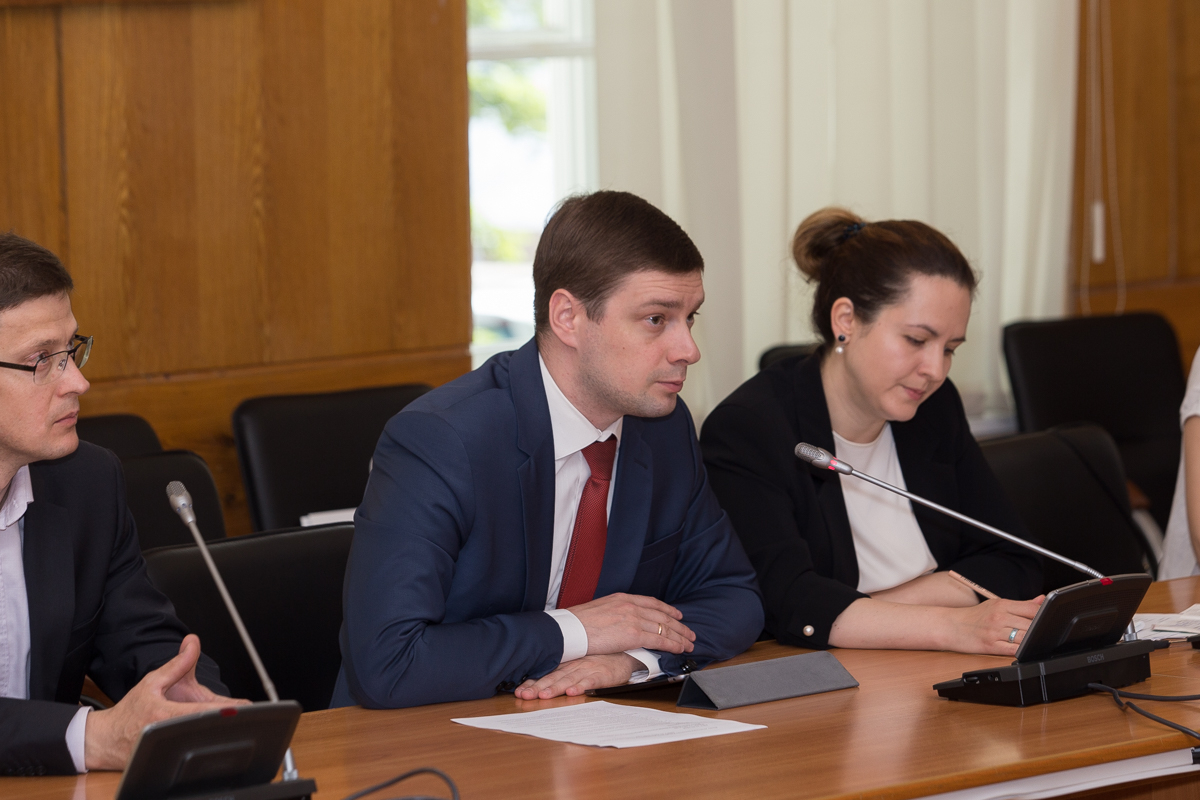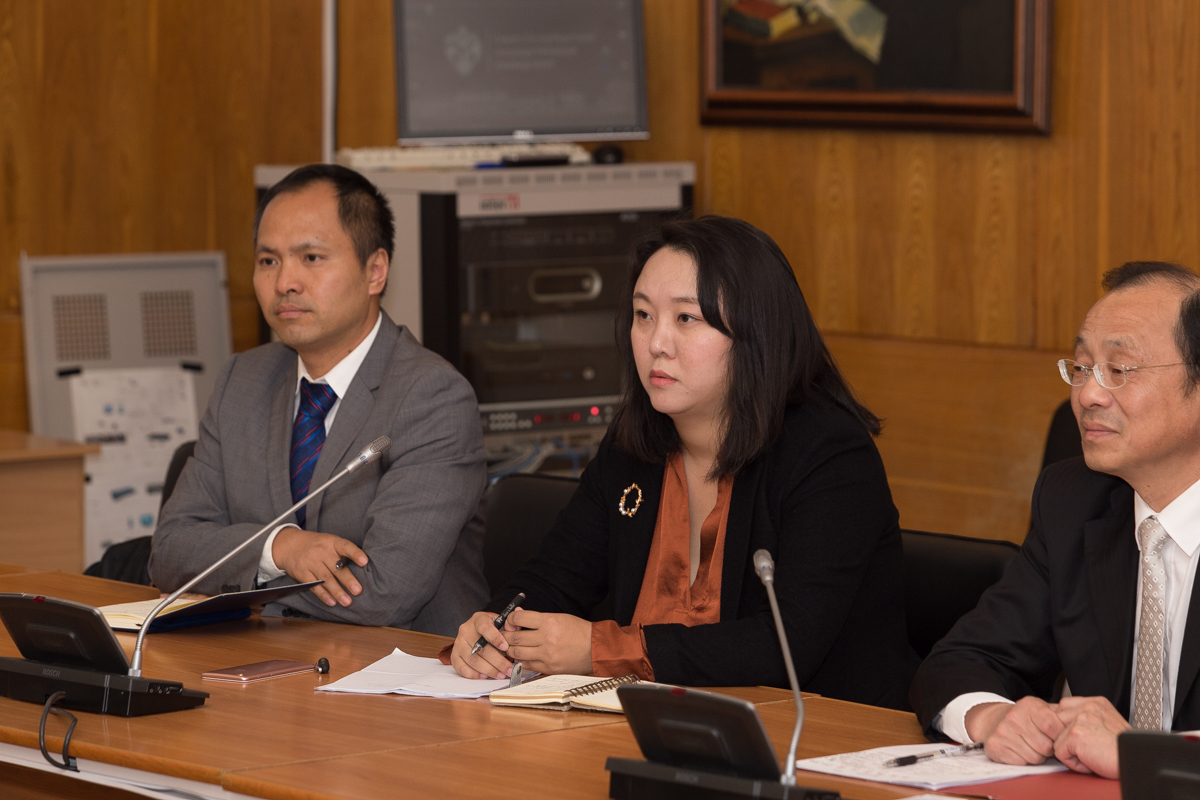St Petersburg University signed an agreement with the East China University of Political Science and Law
The document was signed by Sergei Andryushin, Deputy Rector for International Affairs of St Petersburg University and In Paley, Vice-President of the East China University of Political Science and Law.
The Deputy Rector said that the special status of St Petersburg University – responsible directly to the government of the country - allows to create its own educational standards and implement unique educational programmes, including programmes in foreign languages. In many respects, that is why one of the most topical areas of the University's activity today is internationalisation and integration into the international educational space. Sergey Andryushin stressed that the University seeks to further develop the wide and long-standing cooperation with the PRC. The first step towards this goal will be signing an agreement.
The main directions of the future work of the Russian and Chinese sides are the exchange of students and teachers, joint scientific research, and participation in the programmes of St Petersburg University with the Chinese component. Among them, for example, "Economics (with Advanced Studies in Chinese Economy and Language)", "Laws (with advanced study of the Chinese language and the law of the PRC)" and "Organisation of Tourist Activities (with Advanced Study of the Chinese Language)."
Today, the East China University of Political Science and Law trains about 12,000 bachelor students, 6,000 master students and more than 800 foreign students. It is one of five Chinese universities specialising in legal education.
The head of the programme of Chinese legal bachelor studies, associate professor of St Petersburg University Aleksandr Zezekalo said that students who entered the new programme in 2016 have already completed the second course. They still have to study for 2 years before they receive their diploma. The students have already mastered the foundations of Russian national law, Chinese law, and have begun to actively study the language and culture of China. It is this symbiosis that will allow the University, at the time of graduation, to receive highly professional specialists who are ready to work in Chinese companies on the territory of our country or abroad.
Representatives of the East China University of Political Science and Law noted that their teachers are ready not only to participate in the training of such specialists, but also to accept today's students as participants in summer law schools and other longer educational programmes. This will allow them to immerse themselves in the language and cultural environment of another country
St Petersburg University, in its turn, invited Chinese students to come to St Petersburg for two years to study Master's programmes in English - today, in this format, you can study journalism and international relations. In the future, with the support of the Ministry of Education of the People's Republic of China and interaction with Chinese universities, it will be possible to create such programmes in other fields of knowledge. St Petersburg University as a classical university provides the widest opportunities for this. The University presents almost all fields of knowledge - from art to engineering-oriented physics.
Also, within the framework of the meeting, Russian and Chinese lawyers held a round table devoted to combating corruption in education through the practice of the two countries. Svetlana Kushnirenko, Professor of St Petersburg University spoke about the criminal prosecution for corruption in education. Ekaterina Dmitrikova, associate professor of St Petersburg University disclosed the issue of administrative liability of legal entities for corruption violations. In Paley, the head of the foreign delegation, made a presentation "Public participation in the fight against corruption in China."
According to experts, potentially corrupt fields of activity of universities are: admission to the university; educational work and issuing documents on education; awarding academic degrees and conferring academic titles; filling positions; and economic activities. One of the most effective mechanisms of the struggle is the total openness of the institution.
For example, in St Petersburg University, the replacement of the positions of professors, associate professors, teachers, assistants, allocation of funds for scientific research is carried out exclusively through competitive procedures. All information on programmes and competitions, decisions and documents, and even the final qualification work of students of St Petersburg University is published on the official website in the public domain. And a corruption issue when entering the university has been solved with the implementation of the Unified State Exam. St Petersburg University accepts students according to the results of the USE, and does not conduct additional entrance examinations, despite the fact that it has such right due to its special status.



